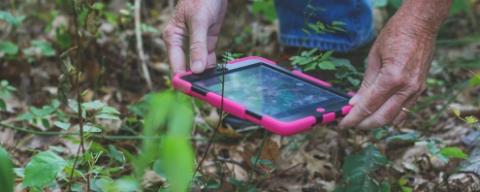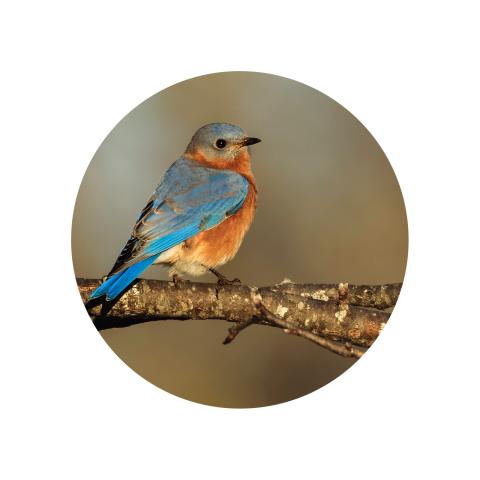Blitzing for Science
While walking in the woods, have you ever been amazed at the many different forms of life that abound? From lichen and ferns to hawks and deer, there are wonders to behold in every forest, field marsh and stream. Anyone who enjoys spending time in nature and collecting data can help scientists, researchers, towns and land managers by participating in an event called a BioBlitz.
A BioBlitz is a species scavenger hunt where volunteers help find and record data on as many different wild living things as possible in a certain area.
Often, a BioBlitz is held on one day, but to avoid large crowds during the COVID-19 pandemic, Extension held a month-long event in September 2021. Extension’s natural resources specialists invited the public to find and document species — plants, animals, insects and fungi — on town-owned lands all across New Hampshire using an app called iNaturalist.
Volunteers downloaded the free app on their smartphones or tablets, then took photos of the species. The app collected location information and made suggestions to properly identify the species, which volunteers could confirm. Over 300 people visited town-owned land in N.H. during September and submitted nearly 7,000 observations.
Evy Nathan identified a state record plant (one not previously recorded in the state) called blue sage (Salvia azurea) on a town property in Newton. Blue sage is a non-native prairie species that likely escaped from a landscaping project.
Sandy Crystall of Bow topped the leaderboard with a staggering 587 observations, while Steven Lamonde of Hancock identified the most species – 282. The most observed species included eastern white pine, partridgeberry, red maple, eastern hemlock and American beech.
“We started this project to involve the public in helping communities learn more about natural resources on town lands,” says project coordinator Haley Andreozzi, who serves as Extension’s wildlife conservation state specialist.
Town-owned properties are important resources and account for 4% of the state’s forestland, encompassing 180,439 acres. “Many towns don’t have a lot of information about the natural resources on the properties they own. Data collected by N.H. BioBlitz volunteers will help communities make decisions about conservation, management and recreation on town lands in the future,” says Andreozzi.
The BioBlitz numbers and collective impact are impressive, but the individual stories from participants across the state are equally as inspiring – like Carol Sarno, who said the BioBlitz motivated her to look more closely at species in her city of Nashua. She identified a large tree of heaven – an invasive plant that she hopes the city will remove.




